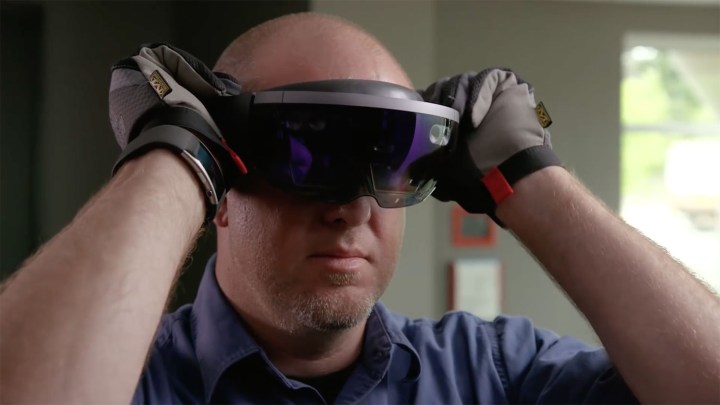
Microsoft is neck-and-neck with Apple in the contest to be the world’s most valuable publicly traded technology company, and it just got a nice revenue boost, courtesy of the U.S. military. A new contract, valued at $480 million, means that the Redmond, Washington, tech giant will soon be equipping American soldiers with its augmented reality Hololens technology.
The two-year contract could see the military purchase up to 100,000 headsets. While it’s not clear exactly how these will be used, a government description of the program claims they will, “increase lethality by enhancing the ability to detect, decide and engage before the enemy.” However, another suggestion is that they will be employed primarily as a training tool, allowing soldiers to engage in “25 bloodless battles before the first battle.” This latter use sounds similar to the way that AR and VR tech is currently used in some military settings to let army physicians to practice procedures in virtual warzones, prior to entering the real thing.
According to Bloomberg, Microsoft won the contract over Magic Leap, the Google- and AT&T-owned rival technology. Microsoft’s Hololens likely had the advantage of already having been explored as a military technology, both by the U.S. and Israeli armies. In all, the Army reportedly held meetings with 25 companies who were interested in taking part in the program in some capacity.
It will be interesting to see the response from other members of the tech community. The weaponization of consumer technology has become a hotly debated topic, particularly with the rise of artificial intelligence and the threat of “killer robots.” Earlier this year, Google decided not to renew a contract for Project Maven, a military A.I. program based on autonomous drones, after a letter objecting to it was signed was signed by more than 4,000 employees.
Amazon CEO Jeff Bezos, on the other hand, has defended his company’s work with the U.S. military. At the Wired 25 conference in October, Bezos stated his view that, “If big tech companies are going to turn their back on the U.S. Department of Defense, this country is going to be in trouble.”


